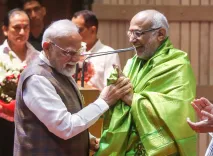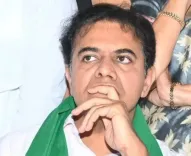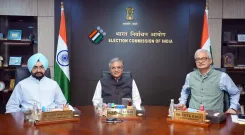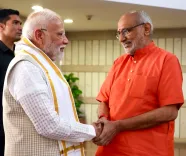Will Tourism Contribute 10% to National GDP by 2030?
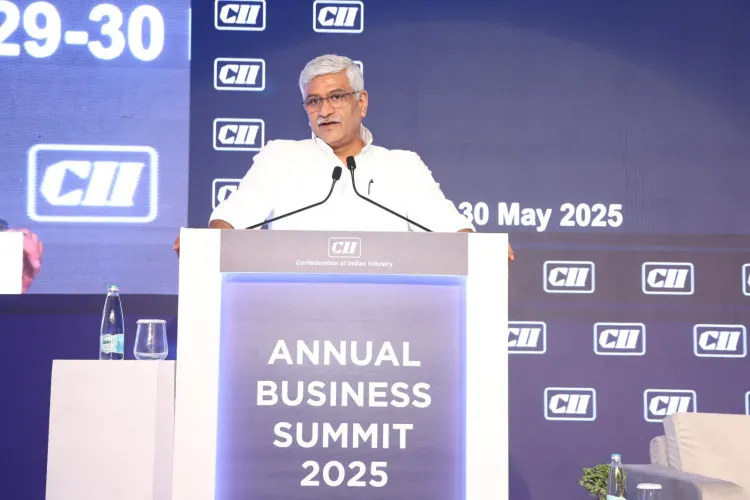
Synopsis
Key Takeaways
- India targets 10% tourism contribution to GDP by 2030.
- Significant growth in spiritual and domestic tourism.
- Infrastructure development supports tourism revival.
- Government initiatives aim to attract new investments.
- India's cultural heritage positions it as a global tourism leader.
New Delhi, May 30 (NationPress) India is on a mission to align its tourism sector's contribution to the national GDP with international standards, aiming for 10 percent by the year 2030, stated Tourism Minister Gajendra Singh Shekhawat on Friday.
During his address at the ‘CII Annual Business Summit 2025’, the minister emphasized that India's increasing prominence globally stems from a resurgence of national pride and a revitalized self-image.
“India, with its rich cultural heritage, varied landscapes, and spiritual insights, has long been a global hub for knowledge and wisdom. We are confidently reclaiming this status,” he shared with the audience.
Post-Covid, the tourism sector has undergone a significant transformation, with travelers increasingly pursuing more immersive and experiential adventures.
The growth in India’s tourism sector is bolstered by substantial infrastructural developments—airports, roads, and railways—especially in the realms of spiritual and domestic tourism.
Popular sites like Ujjain’s Mahakal corridor have seen over 10 lakh visitors in just one month, illustrating the industry's revival, the minister reported.
He also informed about the government's decision to assign infrastructure status to hospitality projects across 50 selected destinations as part of the Budget 2025, paving the way for fresh investments. With an expanding role on international stages, India is emerging as a global soft power, the minister noted.
Sanjay Jaju, Secretary of the Ministry of Information and Broadcasting, highlighted India's unique civilizational journey and diverse cultural expressions as the bedrock of its growing global soft power.
He pointed out that ancient legacies such as the Natya Shastra and Vedas, along with storytelling traditions, music, and mudras, are fundamental in shaping India’s vibrant creative economy.
Jaju also mentioned the establishment of the Indian Institute of Creative Technology (IICT) in Mumbai, designed to be the creative equivalent of IITs and IIMs, as a pivotal step in recognizing India’s cultural and creative strengths.
He reiterated that India stands as a storytelling superpower, with numerous untapped narratives ready to be transformed into engaging, global experiences.
Furthermore, he encouraged the industry to seize the opportunity to become a creative superpower through unity, innovation, and a collective cultural vision.

